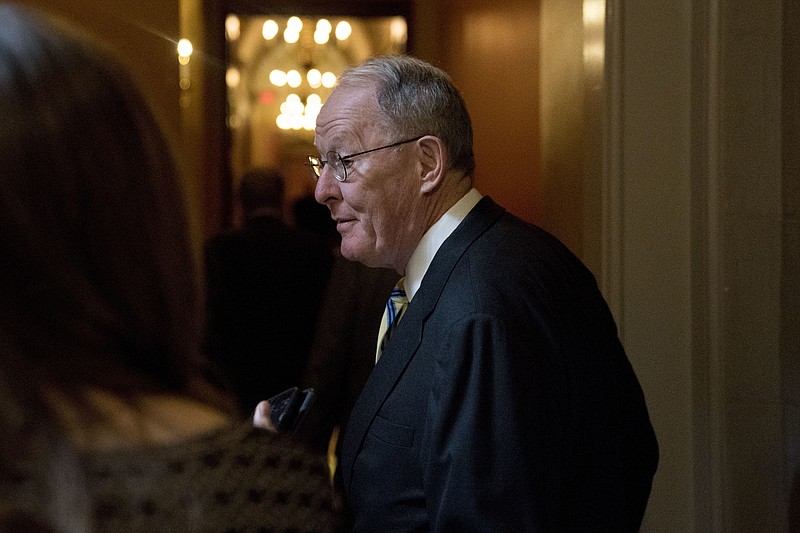NASHVILLE, Tenn. (AP) - Tennesseans are more moderate than their neighbors think they are, and their views of Congress and President Donald Trump have soured some in the past few months, according to a Vanderbilt University poll released Thursday.
In the wide-spanning survey, more than 6 of 10 people said they believed their fellow state residents are conservative or very conservative.
But only about half of those respondents described themselves that way, marking a 14 percentage-point gap between perception and reality. About 3 in 10 considered themselves moderate. Almost 2 in 10 identified as liberal.
"Tennessee is certainly a conservative state, but it's a little bit more moderate than conventional wisdom would lead you to believe," said John Geer, a Vanderbilt professor and co-director of the poll. "Question after question document that in pretty compelling fashion."
Though Tennessee voted strongly in favor of Trump, the poll showed a 48 percent approval rating for him now, down from 60 percent in November after the election and 52 percent in May.
Congress also took a hit in the poll and brought Tennessee's two Republican senators down with it.
Though Tennessee's approval rating for Congress jumped to 31 percent in a May poll, it fell back to 23 percent this month, right about where it's been for a couple of years.
Sen. Lamar Alexander dropped to a 44 percent approval rating after peaking at 60 percent right after the November 2016 election. Sen. Bob Corker dropped from 60 percent in November to 47 percent.
Term-limited Republican Gov. Bill Haslam, meanwhile, remained popular with a 63 percent approval rate.
"Haslam does not have the drag of Congress that both Sen. Alexander and Sen. Corker have," Geer said.
In a statement, Alexander said his numbers are "not much different than earlier Vanderbilt polls, including November of 2014 when I had 51% approval and defeated Gordon Ball 62% to 32%."
The poll showed more than 3 of 4 Tennessee voters want lawmakers to work with their peers in opposing parties, even if it means compromising on values and priorities. That includes more than 67 percent of Republicans.
Most Republicans - 35 percent of them - said lawmakers should build on former President Barack Obama's health care law to improve it, versus repealing and replacing it or establishing universal health care.
Most Republicans - 43 percent - favored letting people in the country illegally stay here and apply for citizenship rather than allowing them to stay as temporary guest workers or make them leave the U.S.
And more than 7 in 10 respondents said that children who are brought to the country illegally at a young age should be eligible for lower, in-state tuition rates at Tennessee public colleges and universities.
The poll also gave an early indication of who has the highest name recognition in Tennessee's two key statewide races.
About 73 percent of those polled about the U.S. Senate race had heard of Republican U.S. Rep. Marsha Blackburn, while 65 percent knew of Democratic former Gov. Phil Bredesen. Former U.S. Republican Rep. Stephen Fincher registered at 22 percent.
In the open race for governor, Republican Rep. Diane Black had the best name recognition at 59 percent. The other Republicans were: House Speaker Beth Harwell, 40 percent; businessman Randy Boyd, 33 percent; state Sen. Mae Beavers, 28 percent; and businessman Bill Lee, 14 percent.
On the Democratic side, former Nashville Mayor Karl Dean registered a 41-percent name ID, while state House Minority Leader Craig Fitzhugh came in at 10 percent.
The poll contacted 1,013 registered Tennessee respondents on both cellphones and landlines from Nov. 16 to Dec. 5. The poll has a margin of error of plus or minus 3.7 percentage points.
